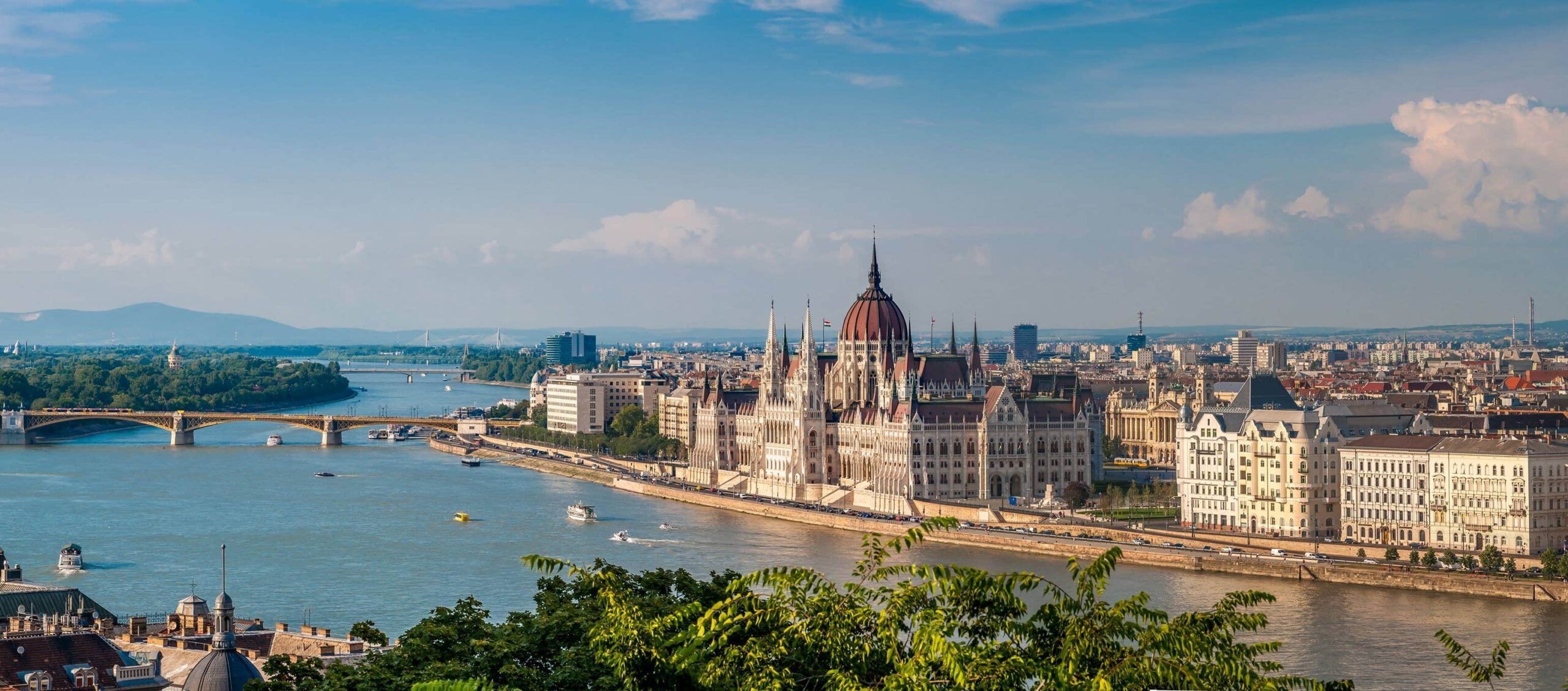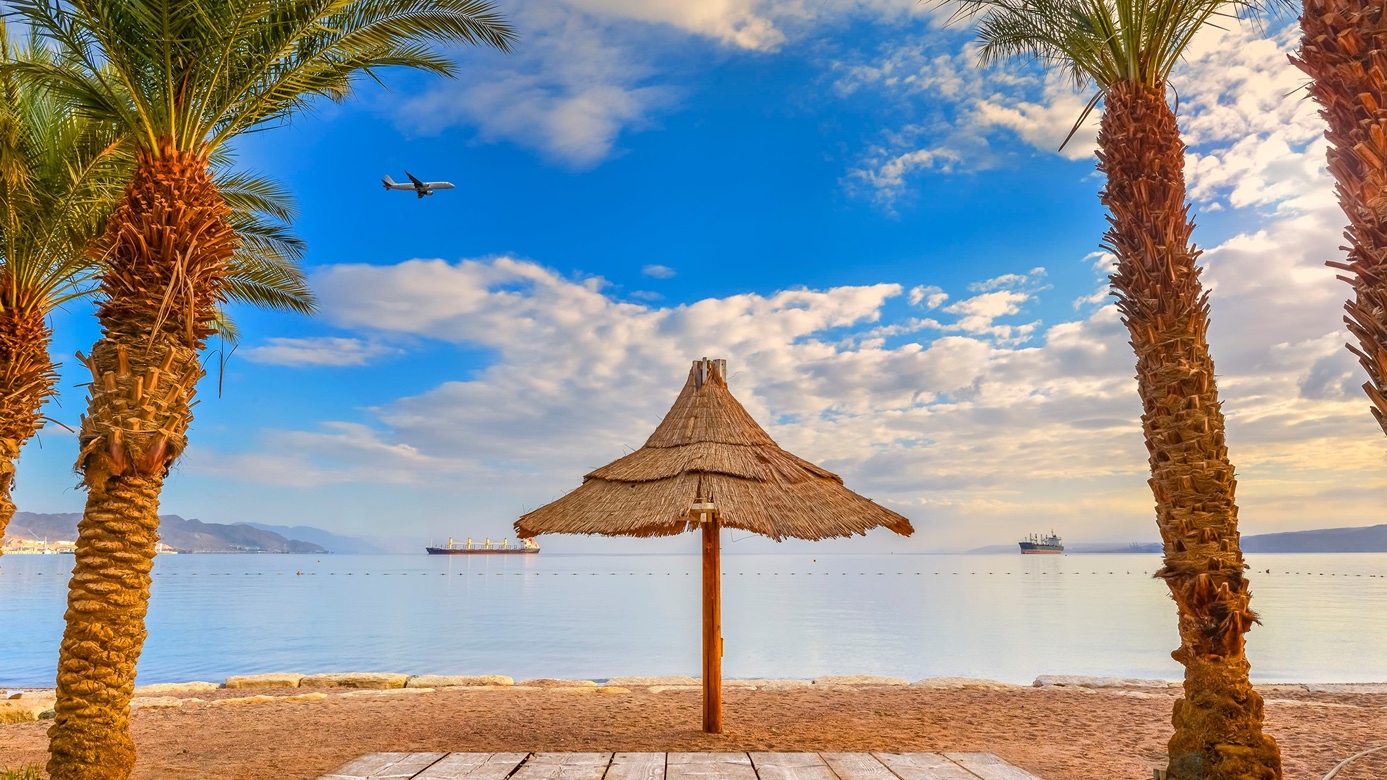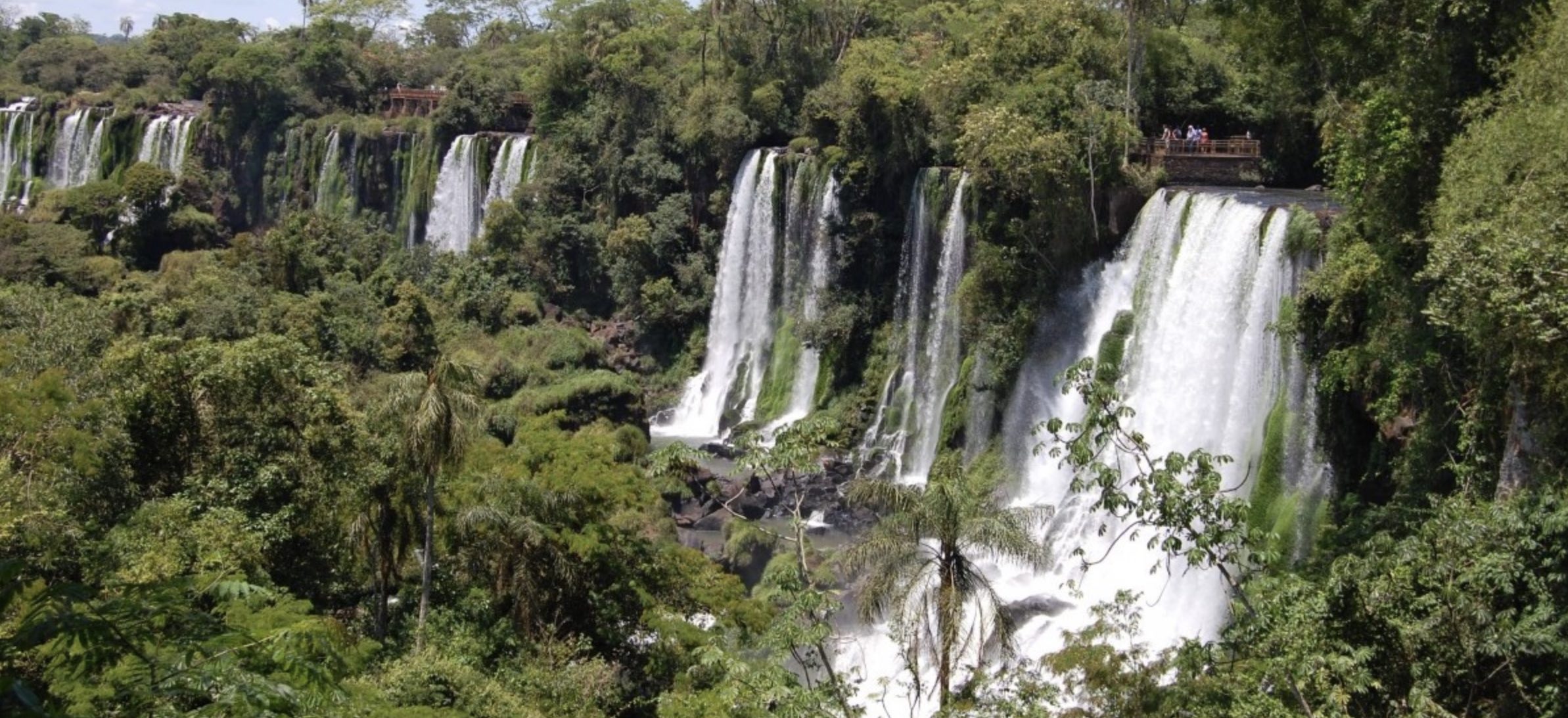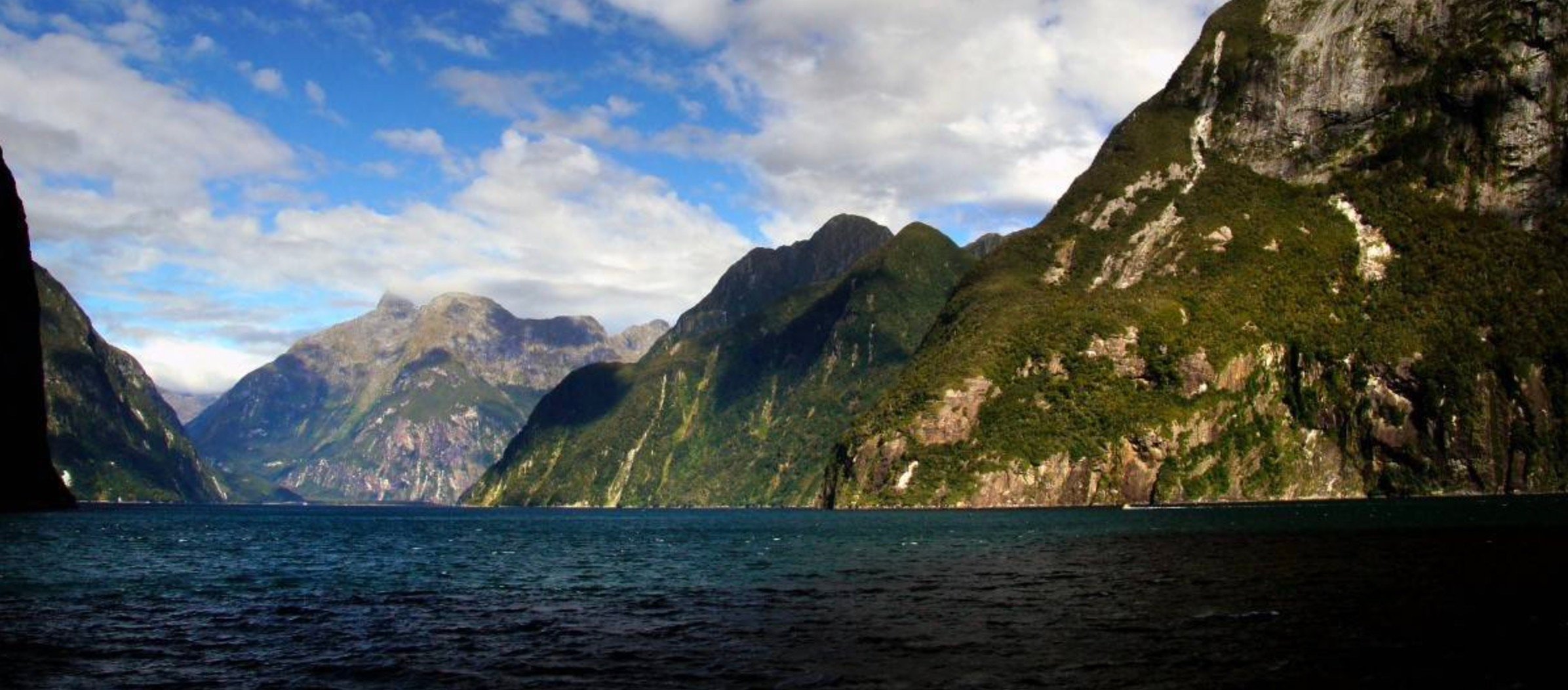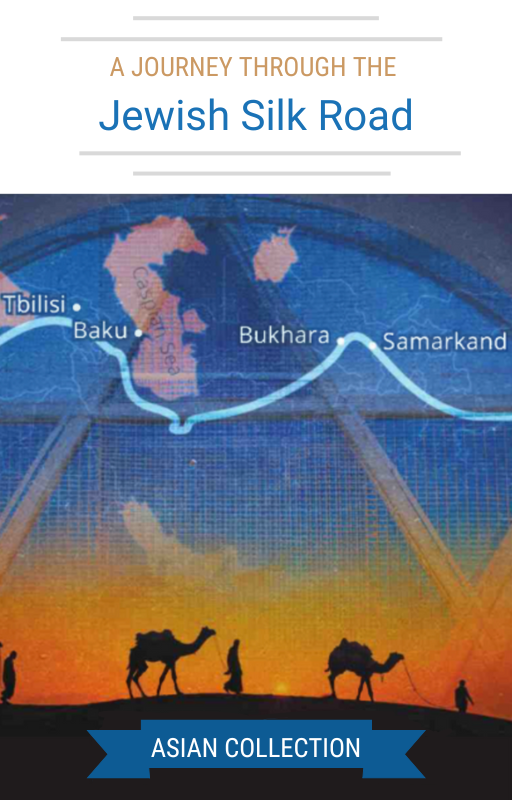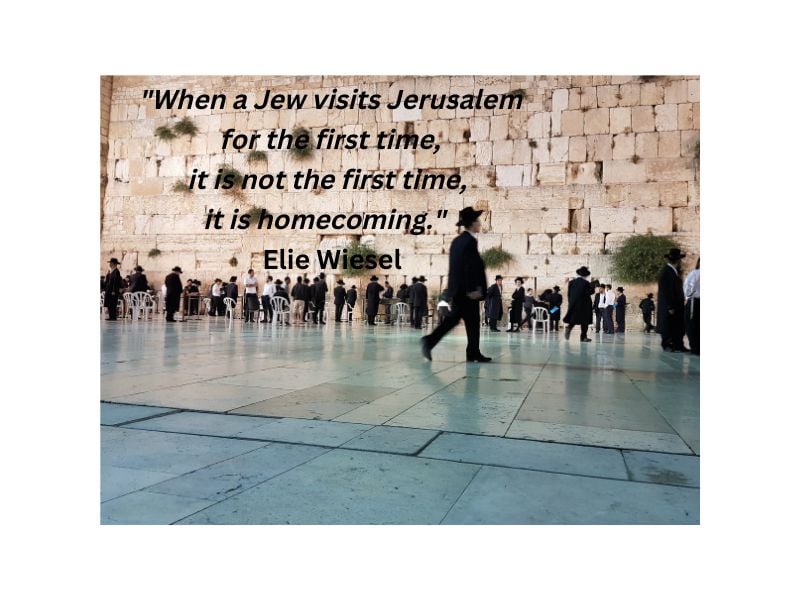Kosher River Cruises combines the luxury and ease of riverboat cruising with exciting and educational land touring and delicious Glatt kosher cuisine. Whether you are interested in discovering Jewish history and heritage along Europe’s waterways or just looking to sit back and relax from the comfort of your floating hotel just watching the scenery pass you by; then this is the tour for you!
Archives: Directory listings
Directory listings
Yona Tours
Yona Tours has been happily serving the Persian community for 15 years. Yona Tours will take you to the best places in the world at the lowest prices. There is no need to worry about anything when you are on our tour. Just bring your camera and be ready to have fun because, on our tour, you will see amazing sights and meet great people. Yona Tours does all of the planning, so you will not have to. Our job is to make sure that your vacation is worry-free. Our number one goal is to make you a happy customer so that you will come back to us over and over again.
African Kosher Safaris
Africa Kosher Safaris offers the kosher traveller the unique opportunity to enjoy the splendors of the African bush while enjoying top quality kosher cuisine, prepared fresh on site under the strictest kashrus supervision.
With 15 years experience, under the leadership of “the safari Rabbi”, Rabbi Yoni Isaacson, we are the leading name in luxury kosher safaris, and our Africa operations are all under the strict supervision of the Beis Din of South Africa.
Our own specialized kosher catering team will entertain your pallet while you enjoy the splendors of nature, giving you the ultimate gourmet safari experience.
We offer regular packaged tours, as well as personalized tailor-made packages, so contact us now, for the experience of a lifetime!
Gil Travel Group
For more than 40 years, our family business has dedicated its time and resources to our customers.
Today, it’s no different. Our expertise lies in creative programming, logistics & competitive pricing. We send all of our agents to Israel and other Jewish communities around the world so they can see and experience firsthand what they’re recommending. They understand cultural nuances. They listen to what you want but know what to recommend for your needs. Among our staff we speak Hebrew, Spanish, French, German, Italian, Albanian, Creole, and Arabic.
Patagonia & Iguazu Falls
From the breathtaking views of Rio to the awe-inspiring waterfalls of Iguazu… from an exciting weekend in Buenos Aires to the spectacular Perito Moreno glacier – one of the world’s largest…. experiencing the wonders of Patagonia aboard the cruise ship Australis and in the Torres Del Paine National Park….. our final stop in Santiago – South America’s most exciting city… 17 days of breathtaking experiences in one of the most fascinating and beautiful areas in the world.
We begin our tour at the world famous Belmond Copacabana Palace Hotel in Rio de Janeiro. Marvel at the mighty Iguazu Falls and the spectacular Perito Moreno – among the largest glaciers in the world. Cruise around Cape Horn and the fjords of Patagonia in our cruise ship, the Australis. Explore the Torres Del Paine National Park with it’s famous peaks from the unique, Singular Hotel in Puerto Natales. We also visit Buenos Aires and enjoy an in-depth tour of both the Jewish and general sites of this historic city.
Zev
Join Zvi Lapian for a thrilling Kosher tour of New Zealand, to experience the diverse natural wonders of these amazing islands.
Our New Zealand tour will start in Wellington and include Auckland and surroundings, the Waitomo Glow Worm Caves; a visit to the Hobbiton Movie set of “Lord of the Rings”; Rotorua, famous for its geothermal activity and where aspects of the Maori traditions can still be experienced; flight to Wellington, the Capital of New Zealand; sailing to the South Island through the Cook Straits on the Interislander ferry to Picton, and on to Christchurch where we will board the Trans-Alpine Train, crossing the spectacular Southern Alps – a journey of 224 kilometers that takes 4.5 hours; a 3-night stay including Shabbat at the magnificent Te Waonui Forest Retreat in Franz Josef, where we will experience walks on the famous glacier and the surrounding, exciting valley; finally on to Queenstown, quietly becoming one of the most popular and beautiful resorts in the world, and our base for exploring Milford Sound.
A Journey Through the Jewish Silk Road
The historical Silk Road, stretching from Italy to China, has seen renewed interest in recent years. A new project aims to trace Jewish culture and history along the famous trade network, from Venice to Izmir and on to Uzbekistan, India and China.
Uncovering the Religious and Cultural Significance of Jewish Tashkent
Introduction to Jewish Tashkent
Tashkent is the capital city of Uzbekistan, known for its many museums and mix of modern and Soviet-era architecture. Located in the northeastern region of Uzbekistan, near the border with Kazakhstan, it’s the most populous city in Central Asia, with a population of 2,909,500. The name “Tashkent” comes from the Turkic tash and kent, literally translated as “Stone City” or “City of Stones”.
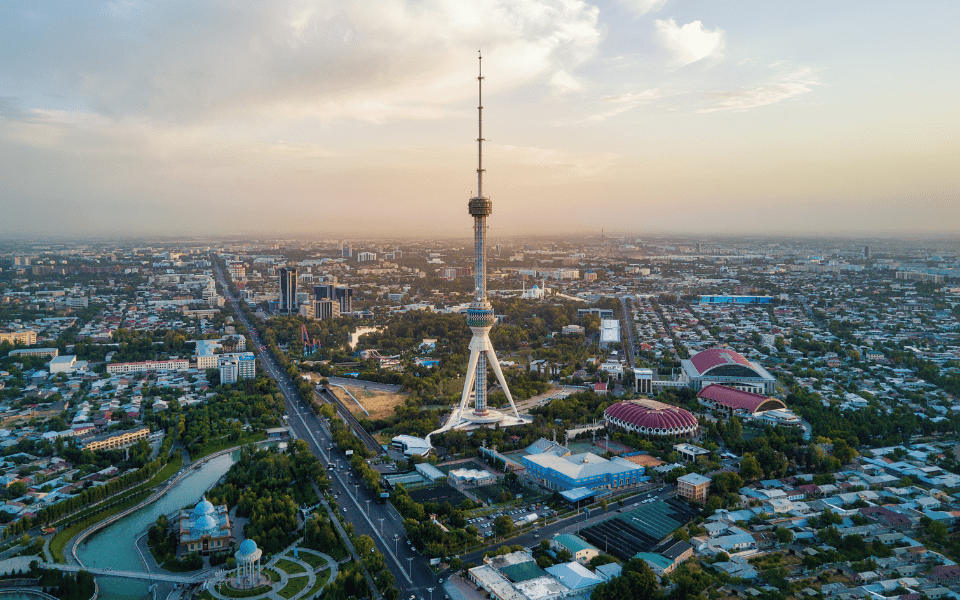
In 1865, the city of Tashkent was conquered by the Russians, and the small community of Bukharan Jews living there at the time saw an improvement in their legal status. This led to a surge of Jews from neighboring Bukhara settling in Tashkent. Despite the Czarist rule prohibiting Jews from European Russia from settling in Tashkent, a small community of Russian Jews who belonged to categories that could settle outside the Pale of Settlement was formed during the latter half of the 19th century.
Jewish Culture and History in Tashkent
Early Jewish Life in Tashkent
In 1897, there were 1,746 Jews in Tashkent, most of whom lived in the city. On the eve of World War I, there were about 3,000 Jews and the city maintained Jewish educational and cultural institutions where Hebrew was the primary language. In addition, a Tajiki-language Zionist newspaper, Raḥamim, was published. With the establishment of the Soviet regime, Jewish cultural and religious institutions were gradually liquidated and the Zionist newspaper was replaced by a communist paper called Bairaki Huriet (“The Flag of Freedom”). During the 1920s and 1930s, Tashkent became one of the centers where active members of the Zionist Organization and pioneering youth movements were exiled. Shortly after, during World War II, Tashkent became one of the most significant absorption centers for refugees from the German-occupied regions. As a result, a large Jewish settlement developed in the town after the war.
Recent and Contemporary Jewish Life in Tashkent
In 1959, 50,445 Jews remained in Tashkent, making up 5.5% of the total population. The majority of them were newly arrived Ashkenazi Jews, making the Bukharan Jews a minority in the community. There was one synagogue for Ashkenazim and two for Bukharans all located within the same compound. The synagogue buildings were all damaged in the 1966 earthquake and though the Bukharan Jews chose to repair their synagogues, the Ashkenazim moved to a new building.
Life became harder for Jews living in Tashkent starting when organized matzo baking became prohibited in 1963. Around this time several Tashkent Jews applied for exit permits to Israel, and after the mass exodus of the 1990s, only a few thousand Jews remained in Tashkent. Though the Jewish community is now small, it has maintained active and welcomes Jews from around the world who come to visit their city.
Iconic Attractions and Events in Tashkent
The Jewish Quarter in Tashkent
The Jewish Quarter of Tashkent is a special place full of history and culture. It is home to some of the oldest synagogues in Central Asia, many of which date back centuries. These places provide insight into the lives of Jewish people throughout Tashkent’s long history, from its origins as an ancient Silk Road city to its modern-day status as a thriving cultural center. The area also features several renowned attractions such as the Great Synagogue, or Choral Synagogue, which was built in 1866 and is one of the largest Jewish houses of worship in Central Asia today. Additionally, visitors can explore other historic sites including cemeteries and monuments dedicated to famous figures associated with the city who have made significant contributions in fields such as literature, art, science and politics.
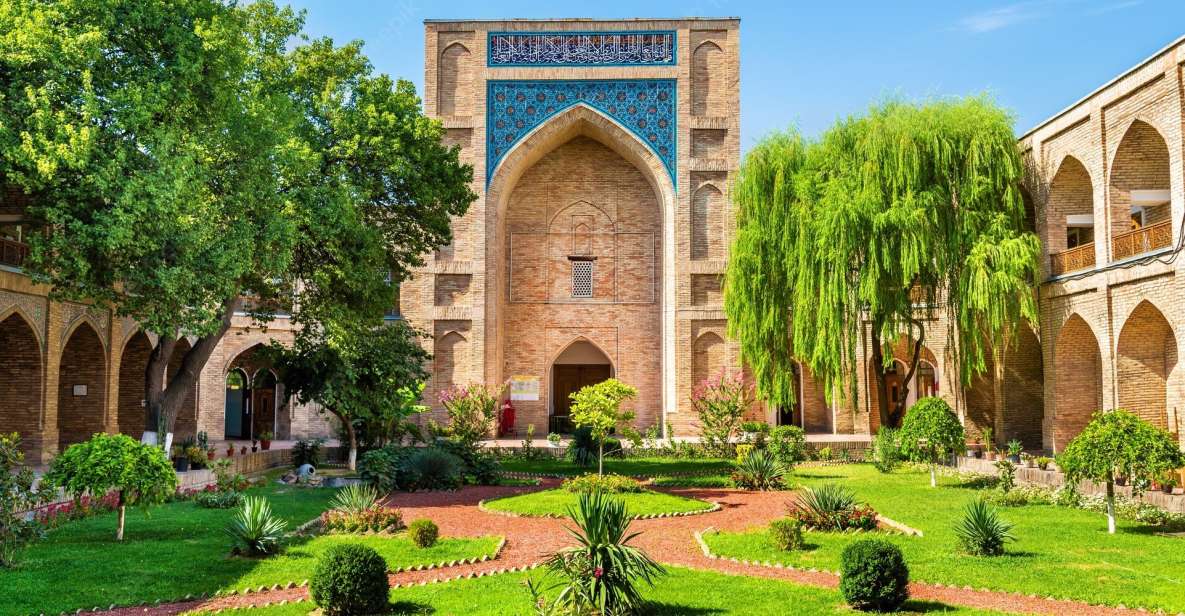
Midieval Kukeldash Madrasah in Tashkent, Uzbekistan | Attribution: Monticello
The Tero Synagogue
The Tero Synagogue in Tashkent is one of two active Bukharian synagogues. Mr. Arkadiy Isakharov is the chairman of the synagogue who often leads tours of the building and can explain the brief history to guests who wish to learn about the Jewish community of Tashkent. The synagogue’s arc contains numerous Torah Scrolls, several of which survived a fire and others that are more than 250 years old! This synagogue was formed because of the nearby Jewish cemetery, also known as the Textile Cemetery. In Tashkent there are two cemeteries that were used to bury Bukharian Jews: the Textile Cemetery and the Chigatai Cemetery.
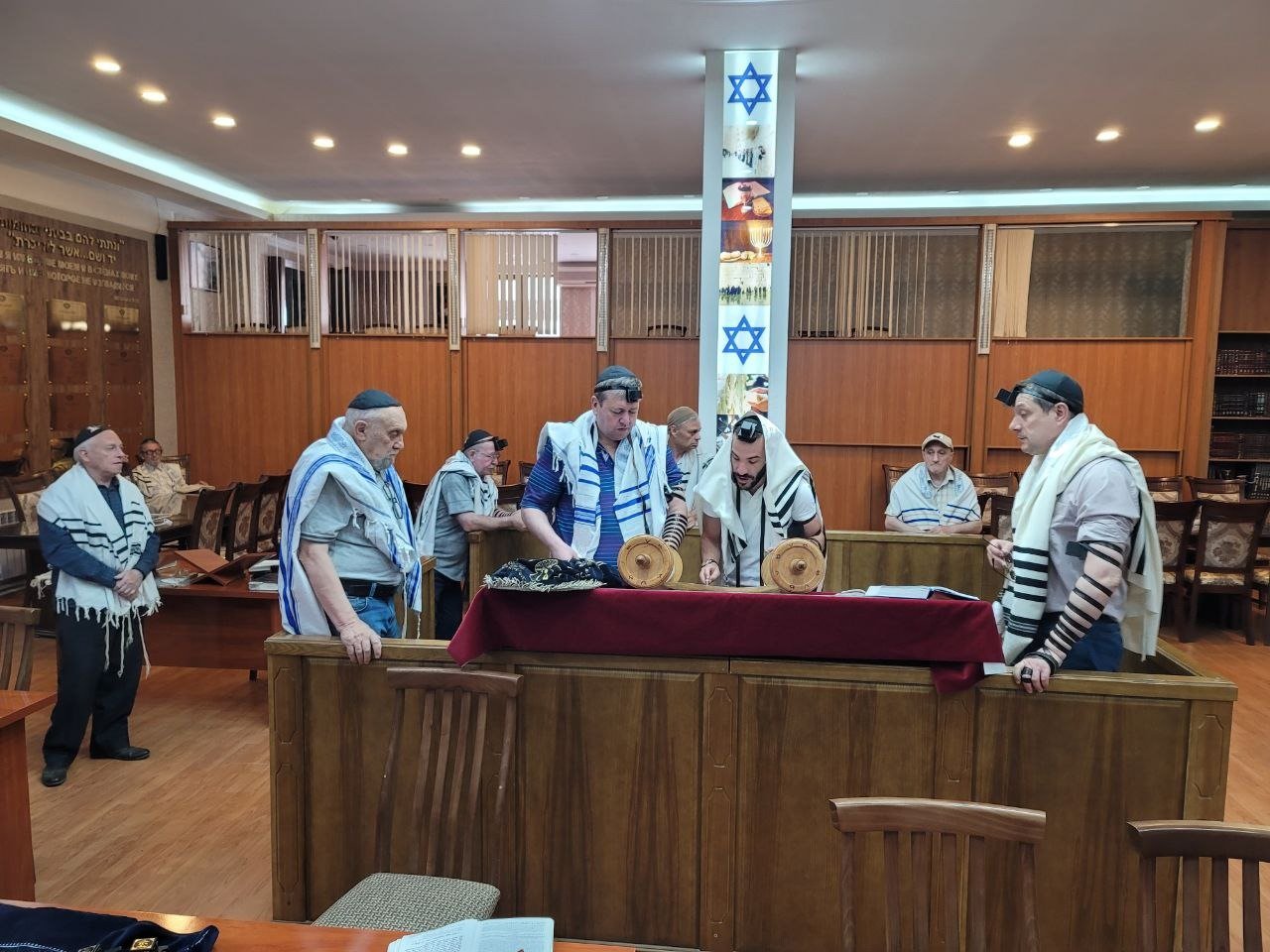
The Textile Cemetery
The European-Jewish cemetery, also known as the Textile Cemetery, is located in the central part of the City, next to the Textile Factory. The first graves here date back to 1944, but the number of people who choose to be buried here is decreasing each year. The total number of graves in this cemetery is 16,300, the majority of which (14,320) were placed between 1944 and 1965. The cemetery consists of 8 sectors: 6 sectors are Jewish and 2 sectors are Russian.
Popular Folk Dance ensemble “Shalom, Tashkent”
The folk dance ensemble “Shalom, Tashkent” is a popular dance group from the Jewish Quarter in Tashkent that has been performing for over 30 years. Founded by three brothers, the ensemble was created to celebrate and preserve traditional Uzbek-Jewish culture through song and dance. The performance features a colorful mix of music and movement inspired by both Ashkenazi and Sephardic traditions, with costumes designed to evoke the rich history of Jewish life in Central Asia. In addition to their regular performances at local festivals and events, “Shalom, Tashkent” also offers special workshops for visitors interested in learning more about the city’s unique cultural heritage.
Iconic Personalities of Tashkent
Barno itzhakova
Barno Itzhakova was a famous singer born in Tashkent, Uzbekistan, from a traditional Jewish family. She sang in various languages including Uzbek, Tajik, Bukhori, and Russian, reflecting the multicultural nature of Uzbekistan. She was known as the “Queen of Shashmaqam,” a royal music developed to entertain the Emir of Bukhara and his court, in which Bukharan Jews played a prominent role. Itzhakova became a star of stage, radio, and television in Tajikistan, where she moved with her husband, who was also a singer. She won many government awards, including the Soviet Order of the Red Banner of Labor. After the collapse of the Soviet Union, she and her husband migrated to Israel due to the volatile nationalist atmosphere in Central Asia. She died in 2001, but the city of Petah Tikva in Israel decided to preserve her memory by naming a street after her in 2017.
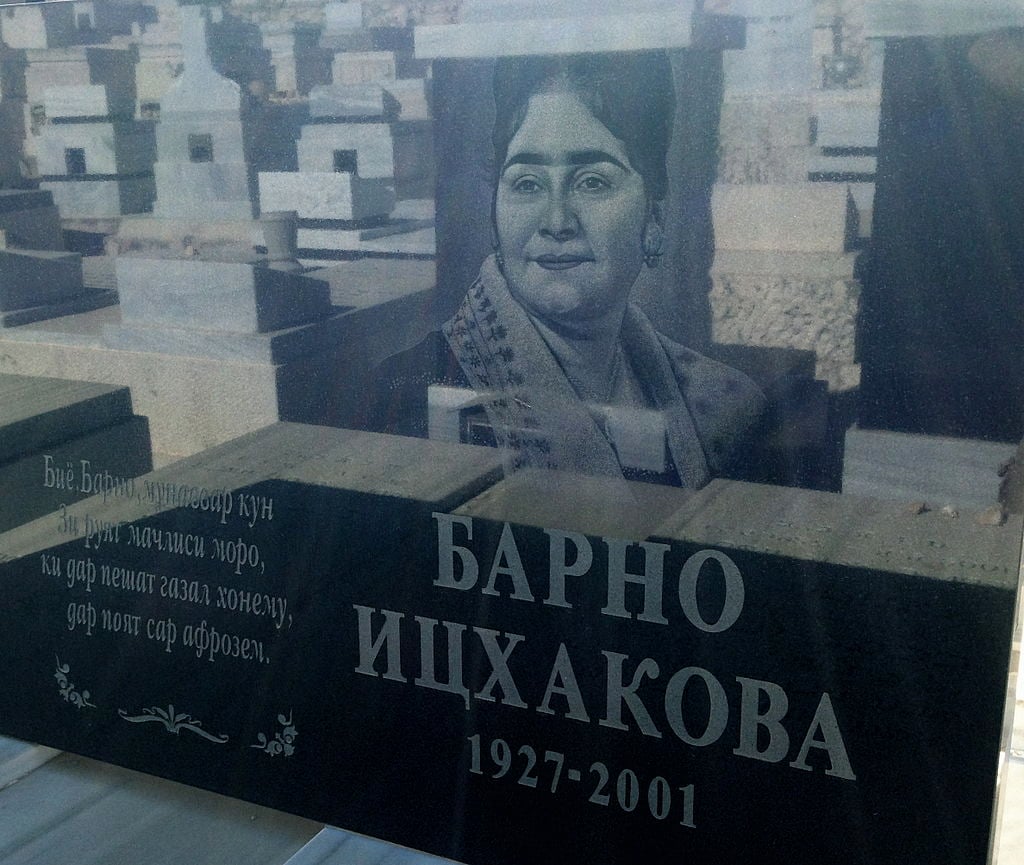
Ilyas Malayev
Ilyas Malayev was a talented poet and musician who was considered a virtuoso in the tar, tambur, and violin. He mastered the traditions of Central Asian music known as Shashmaqam and became a national figure in Soviet Uzbekistan, particularly in Tashkent where he combined traditional Shashmaqam with his own songs, poetry, and comedy. However, anti-Semitism and Communist control of the arts limited his creative freedom, and he was unable to have his poetry published. Desperate to have his poetry published, he left Uzbekistan for the enclave of Bukharan Jews in Queens, New York, where he continued to perform, write, and lead ensembles. Despite being lionized by the local Bukharan community and praised by music scholars, he lived in relative poverty and anonymity, always wondering whether his move to New York was worth it.
Summary of Tashkent’s Jewish Story
Tashkent is a city of great cultural and religious significance for the Jewish community. From its early beginnings as a significant center for Bukharian Jews to its modern-day attractions such as the Textile Cemetery and Tero Synagogue, it’s clear that this Central Asian hub has played an integral role in shaping Jewish life throughout history. Whether you’re interested in learning more about ancient customs or experiencing contemporary culture firsthand, there are plenty of sites within this vibrant metropolis where visitors can explore the rich legacy of Judaism in Tashkent.
Exploring Jewish Batumi: A Look Into its History, Culture and People
Introduction to Jewish Batumi
Batumi, the capital of Adjara, Georgia is a city with an intriguing and vibrant Jewish history. Located on the eastern shore of the Black Sea, Batumi has been home to many Jewish families for centuries. From its earliest days as a major trading port in antiquity to its modern-day role as a center for tourism and culture, Batumi’s rich Jewish heritage still remains evident throughout the city today.
This article will explore Batumi’s historic Jewish quarter and important cultural sites related to Judaism, such as synagogues and cemeteries. We will also look at famous figures from this period who made their mark on the city’s history—from rabbis to writers—as well as contemporary Jews who have lived or died here in recent years. Finally, we will take a look at how Batumian Jews have contributed to local life through their food, music and arts over time. Join us now on our journey through Jewish Batumi!
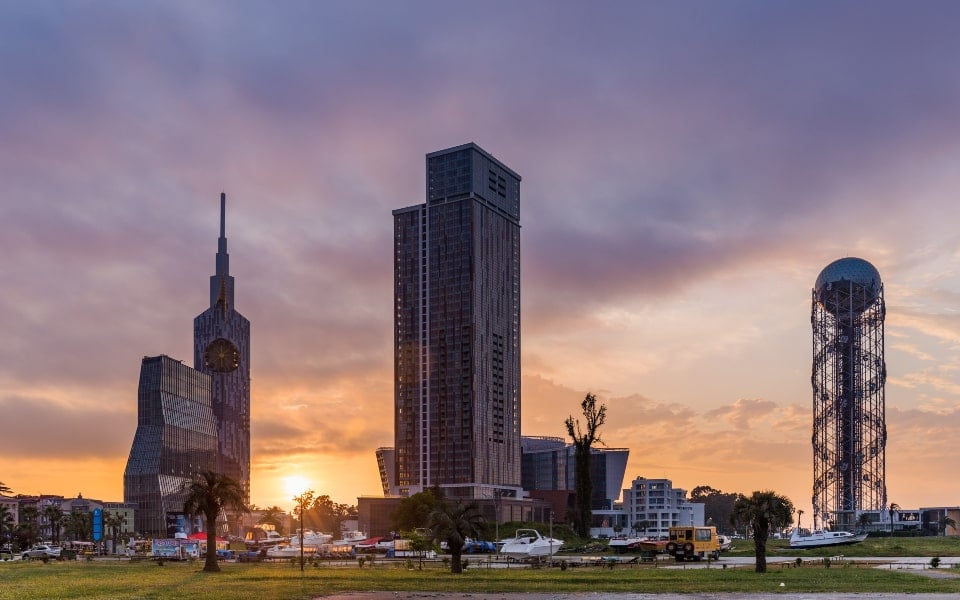
Jewish Culture and History in Batumi
Early Jewish Life in Batumi
Jews have been living in Batumi for centuries. The earliest known Jewish settlers arrived in the city as early as the 16th century, when it was a major trading port of the Ottoman Empire. These Jews were mainly traders and merchants who came to take advantage of its bustling economy. Life for these early Jewish inhabitants was difficult but also full of opportunity; they had access to education and religious freedom, yet faced discrimination from local authorities due to their religion. Despite this, many Jews prospered in Batumi during this period and made significant contributions to the city’s culture and economy.
Jews in Batumi were mainly traders and merchants who took advantage of the city’s bustling economy. They also contributed to local life through their skilled crafts, such as goldsmithing and carpentry. In addition, they were involved in banking and moneylending, providing vital financial services to the community. Furthermore, Jewish culture had a strong influence on the city’s art scene—from theater performances to music—and many Batumian Jews became famous writers, poets and musicians during this period. All these contributions helped make Batumi an important cultural center for centuries.
Recent and Contemporary Jewish Life in Batumi
Jews have a long and storied history in Georgia, with records of Jewish settlements dating back to the 6th century. The first known Jewish communities were established in Mtskheta and Tbilisi during this time. Over the centuries, more Jews migrated to Georgia from other parts of Europe and the Middle East, with many settling in Batumi by the 16th century. These early settlers mainly traded goods and provided financial services for their neighbors, as well as contributing to local culture through music, theater performances and literature. Today there is still a strong presence of Jews living in Batumi who are proud to be part of its vibrant cultural heritage.
Today, Jews living in Batumi enjoy the same religious freedom and economic opportunities as other residents. The Jewish community is well-integrated into everyday life, with many of its members involved in business, politics and culture. In addition to celebrating traditional holidays like Passover and Hanukkah, there are also a number of organizations dedicated to preserving Jewish culture in the city such as the Batumi Jewish Heritage Center. This center works to promote awareness about local history through exhibitions, lectures and workshops on topics related to Judaism. Furthermore, it hosts various cultural events throughout the year which bring together people from different backgrounds for music performances, art shows and more.
Iconic Attractions and Events in Batumi
The Jewish Quarter in Batumi
The Jewish Quarter of Batumi, Georgia is a charming and historically rich neighborhood that dates back to the 19th century. This neighborhood was once home to a thriving Jewish community that played a significant role in shaping the culture and economy of the city. The area’s architecture is a beautiful blend of European and Oriental styles, which adds to the neighborhood’s unique character. Visitors to the Jewish Quarter can explore its fascinating history, stroll along its narrow streets, and take in the stunning buildings that adorn the area. The synagogue located in the heart of the neighborhood is a must-see attraction and serves as a testament to the community’s enduring heritage and culture.
Batumi Synagogue
Jewish people arrived in Batumi after the Russian-Turkish war in 1877-1878. In 1899, Emperor Nicholas II of Russia granted permission to the Jewish Diaspora to construct a stone synagogue in the city, which was named the “Ashkenazi” synagogue. The construction began in 1900 and was completed in 1904 under the supervision of architect Semion Vulkovich, who was inspired by the synagogues in Amsterdam and The Hague.
The Batumi Synagogue served Ashkenazi Jews until 1923 when it was closed down by the Soviet Government and used for sports organizations. However, it was returned to the Jewish community in 1993, restored to its original function in 1998, and renovated the same year. In 2011, it was granted cultural heritage status. The synagogue is currently attended by about 70 Jews, and it is also visited by many tourist groups from Israel. Beit Chabad Batumi, which is located nearby, offers kosher Georgian and Israeli dishes and is particularly active during the summer influx of Israeli tourists.
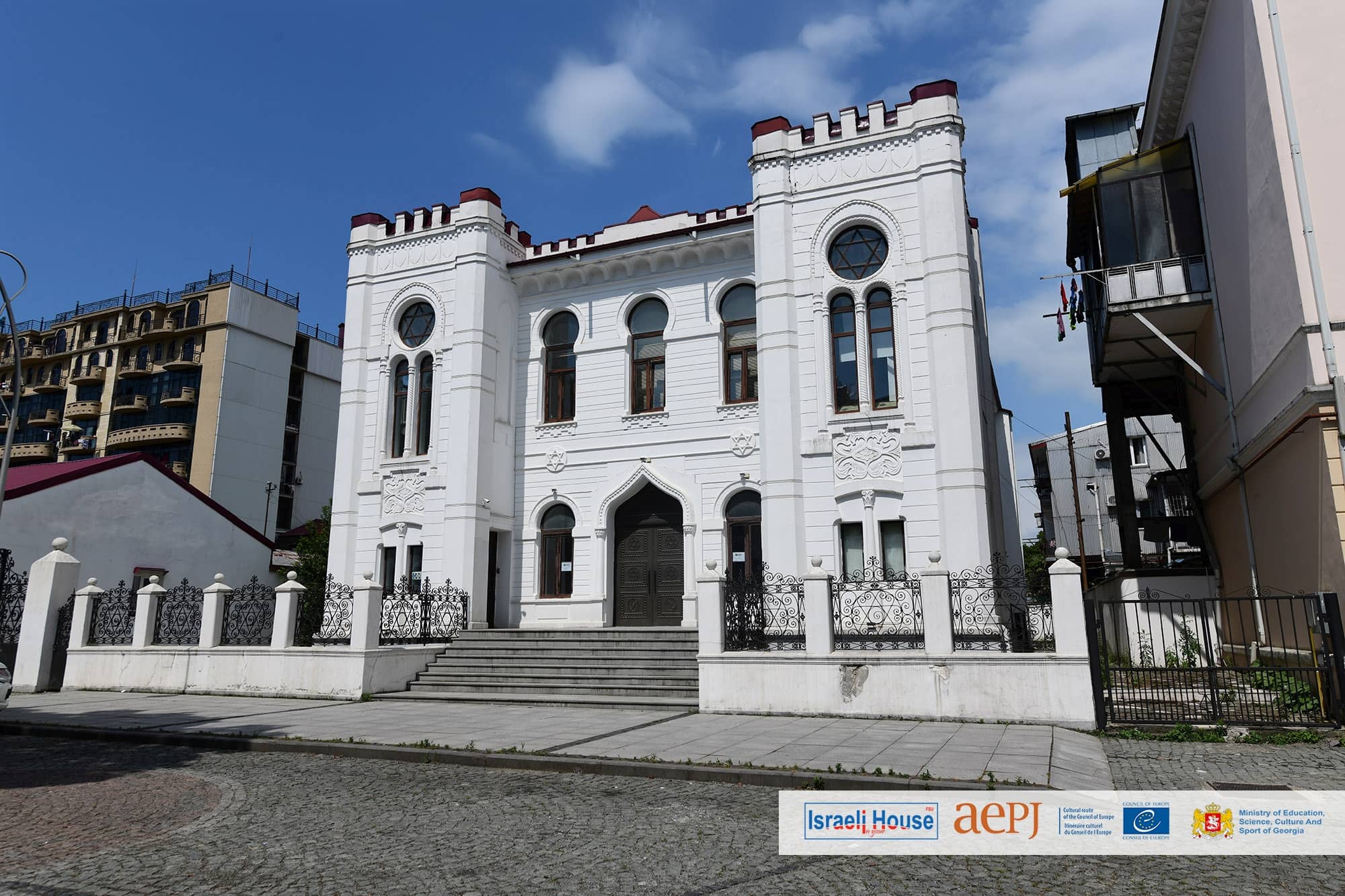
Jewish Graveyard in Batumi
The Jewish Graveyard in Batumi is situated in the Beenze district, adjacent to the Georgian cemeteries. The graveyard is a significant historical and cultural site for the local Jewish community. It has been in use since the late 19th century when Jewish people settled in Batumi after the Russian-Turkish war. The graveyard is a reminder of the Jewish presence in the city and contains the graves of many prominent members of the community. Despite its historical and cultural significance, the graveyard has suffered from neglect over the years, and many of the graves have fallen into disrepair. However, efforts are being made to restore and preserve this important site for future generations.
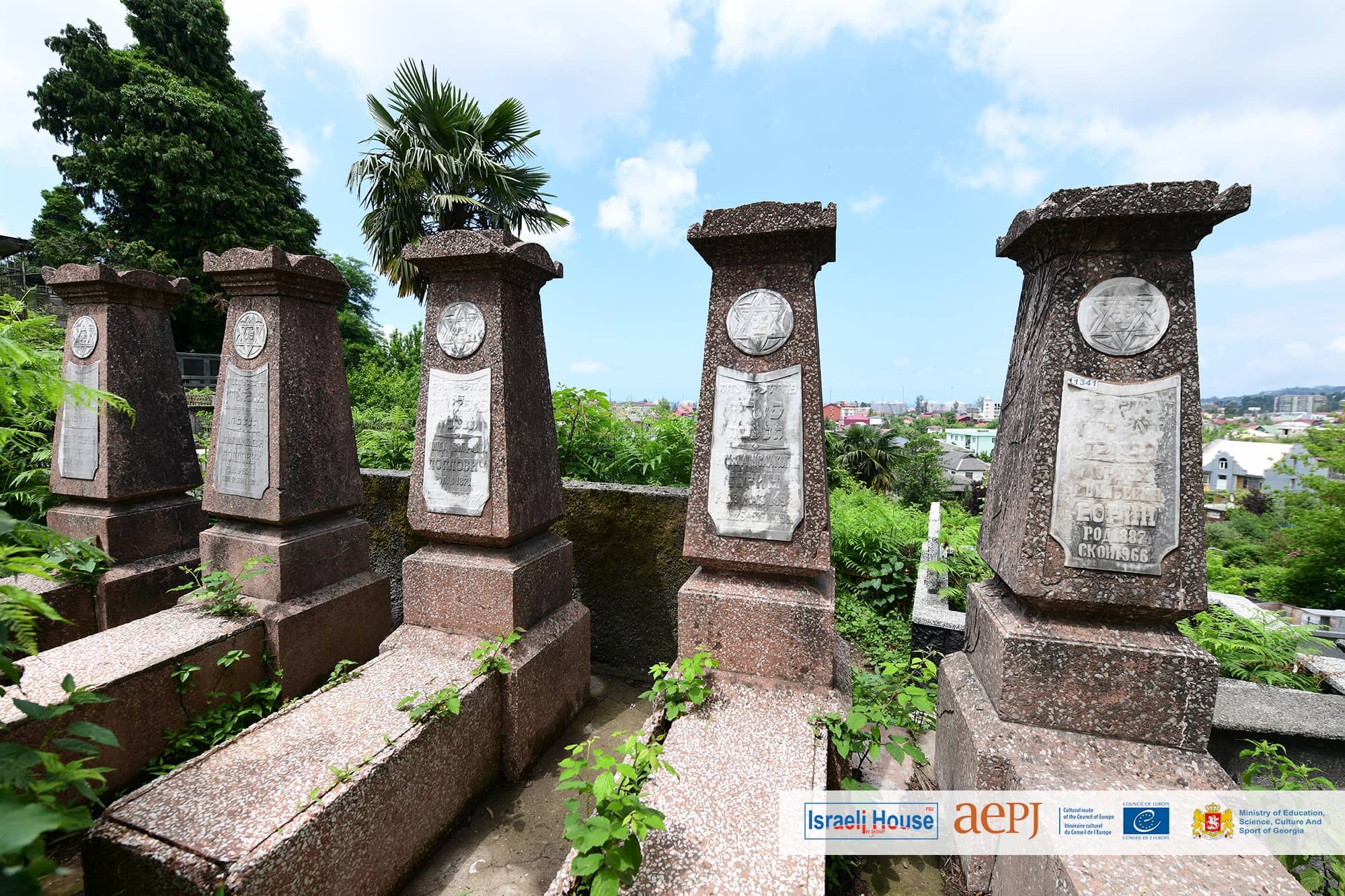
Popular Hanukkah Celebrations
Hanukkah is an eight-day Jewish holiday that celebrates the rededication of the Second Temple in Jerusalem by the Maccabees. During this time, Jews around the world light a menorah and exchange gifts to commemorate the miracle of Hanukkah. In Batumi, Hanukkah celebrations are marked with special events throughout the city such as parades, concerts and parties. The highlight of these festivities is the annual lighting ceremony that takes place on Beach Boulevard where people gather to sing traditional songs and watch as hundreds of candles come together to form a giant menorah. Other popular activities include visiting local synagogues for prayer services, playing dreidel games at home with family and friends, eating traditional foods like latkes (potato pancakes) and sufganiyot (jelly donuts), exchanging presents among loved ones, and more!
Iconic Personality of Batumi
Mr. Rafael Wilschanski
Rafael Wilschanski was born in Radom, Poland in November 1924 but spent his formative years in Batumi. His parents came from the Lubavitch community in Ukraine, and due to their religion, they frequently moved to avoid arrest and Siberian exile. Rafael did not attend a Jewish school but instead went to an underground one in Kursk, Russia, where he remained for six years. During the German occupation of Russia, many Jews were arrested and killed, but Rafael managed to keep in contact with his family, who eventually reunited in Samarkand, Uzbekistan.
They then moved to Poland, where Rafael learned about the extermination camps. The family escaped through Czechoslovakia to Vienna and then went to a displaced persons camp in Germany. Later, they moved to Paris, where Rafael lived for 25 years and assisted the Lubavitch office. He eventually got married and continued to practice his religion. Despite facing many challenges due to his Jewish faith, Rafael remained committed to his beliefs and worked tirelessly to preserve the memory and heritage of the Jewish community.
Summary of Batumi’s Jewish Story
Batumi is an ancient city with a rich Jewish history and culture. From the early days of settlement to modern times, Jews have been an important part of Batumi’s development and growth. Although it has experienced periods of decline, today there are many places where you can explore its unique Jewish heritage including synagogues, cemeteries, popular Hanukkah celebrations and iconic personalities like Rafael Wilschanski who proudly held on to his faith throughout turbulent times. Whether you’re looking for religious or cultural experiences in Batumi or simply want to take a walk back through time, this beautiful coastal town offers something special for everyone!
Shai Shvalb
Shalom
My name is *Shai Shvalb*, and I am a professional private tour guide and the owner of *Know the Land*. As a storyteller, I love to lead and guide my guests using my private car in the Land of Israel. I am especially enthusiastic about guiding those interested in history and archaeology, interfaith dialogue and comparison, the Bible, Israeli society, and, of course, Israeli food and markets. I guide in a deep and meaningful way, seasoned with a sense of humor.
In 2019 I published a one-of-a-kind Hebrew English dictionary about the Land of Israel – *Know the Holy Land*. I recently (2022) finished writing the manuscript for my second book in English – *A Bridge to your Roots*. Using my knowledge of the Bible and Hebrew, my book connects Evangelical Christian believers to the Land of Israel, where all the roots of their faith began at the time of Jesus. So stay tuned
I offer you my services as a one-stop shop for all your needs in Israel: guidance, transportation, booking hotels, VIP handling at the airport, and anything else you might need.
